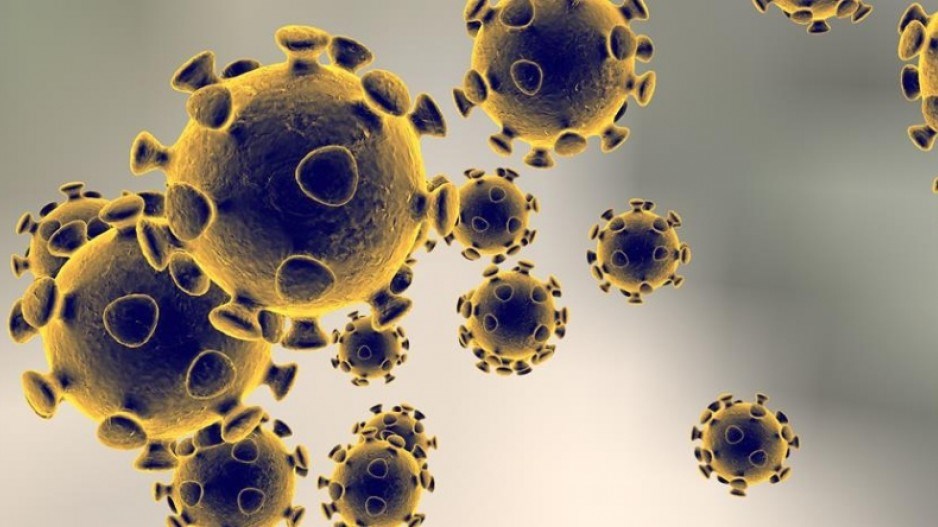While COVID-19 continues to take a grim toll on the world, there was more bad news for B.C. residents hoping to receive the vaccine.
Moderna announced Friday it is reducing the amount of vaccine it will send to Canada by one-fifth, resulting in 6,000 fewer doses for British Columbians in the upcoming week. Moderna shipped 340,000 does to Canada over the past month but that number is expected to drop to 290,000 doses next week.
The country’s supply of Pfizer-BioNTech vaccine has also been drastically reduced and for the next two weeks deliveries to Canada will be cut by 80 per cent because of production disruptions. B.C. provincial health officer Dr. Bonnie Henry said the federal government has assurances from Pfizer and Moderna that the shortfalls in the contracts will be made up by the end of March.
“Our vaccine supply is proving to be a challenge,” said Henry, at her Friday news update in Victoria. “As we’ve reported on before the Pfizer vaccine, having no doses arrive this week and reduced doses for the following two weeks, we are reassured that that will increase again in the third week of February, but that does leave us with much less supply than we were intending.
“Today we were advised that the supply of Moderna vaccine that’s scheduled to arrive next week has also been reduced by about 20 per cent due to some difficulties at the Moderna processing plant. Of course this is disappointing for all of us. We are working with what we have available to best address those most at risk and those hot spots and outbreaks that are happening in communities.”
Henry reported all long-term care home and assisted-living facilities in the province have offered the vaccine to most residents and staff, with some of those facilities close to 100 per cent immunized. But there are still some COVID patients in those facilities dealing with the disease unable to receive their shots.
While the vaccine rollout has been slower than anticipated, Henry remains confident the province will meet its Phase 1 and Phase 2 vaccination objectives, including 250,000 B.C. residents who are 80 or older, and that it will begin offering the vaccine to all residents starting in April.
“It is going to be a challenging few weeks and it’s frustrating because we started to see the benefit of this,” said Henry.
Health Canada indicated Friday it is close to making a decision on whether to approve the AstaZeneca vaccine that’s been in use the past month in the United Kingdom, Europe and India. Henry said the vaccine works especially well in younger patients.
“We are very hopeful that AstraZeneca will be approved in Canada,” said Henry, who sits on a national pandemic special advisory committee. “Health Canada, the regulator, has been working very closely with EMEA, the European regulator, so that is good news for us. Obviously they won’t tell us until they’ve had a full assessment of all the data but we are meeting on Sunday to talk about that so I expect it will be soon.”
A fourth potential source for Canada, Johnson & Johnson, released its Phase 3 clinical trial results which showed its single-dose vaccine is anywhere from 70-85 per cent effective.
“It was not as efficacious in the trials as either the AstraZeneca or the messenger RNA vaccines but they are doing additional trials looking at two doses and seeing whether that will improve the vaccine effectiveness,” said Henry. “Having said that, a single dose that provides 70 per cent effectiveness is going to also be a positive thing, considering we have zero protectiveness right now.”
As of Friday the province has given out 124,979 doses of vaccine and 4,262 people have received a second dose. Most of those who have been immunized are residents of long-term care or assisted living facilities as well as care home staff and front-line health care workers.
With its remaining supplies of vaccine the province is prioritizing three hospitals – St. Paul’s, Royal Inland and Royal Columbian – where COVID flareups have occurred. It will also prioritize high-density shelters in Surrey and Vancouver where transmission has occurred will provide targeted immunizations to three provincial jails. Several First Nations communities are also considered higher-risk areas.
The more infectious variant strains of COVID-19 continue to arrive in B.C. with seven cases of the United Kingdom strain and four cases of the variant South African strain reported Friday.
“We have three individual people who, most concerning to us, are not associated with travel and we are continuing an investigation,” said Henry. “We have not seeing any onward transmission but the contact tracing is ongoing with all of those cases.”
COVID-19 resulted in the death of another person in the Northern Health region, among five deaths the province reported in the previous 24-day period which raised the death toll to 1,189.
There were 514 new cases in B.C. for a total of 66,779 cases since the pandemic began. Of those new infections, 57 were in the Northern Health, 223 were in Fraser Health, 124 were in Vancouver Coastal, 71 were in Interior and 29 were in Vancouver Island.
There are 4,557 active cases in the province, with 292 COVID patients hospitalized, 74 of whom are in critical care or intensive care wards. There are at least 7,000 British Columbians being monitored after being exposed in infected people and 59,551 have recovered from the virus.
One new long-term care outbreak was reported at Holy Family Hospital in Vancouver. Lower Mainland outbreaks are now declared over at Mayfair Seniors Living Care, Morgan Place Care Family and Little Mountain care facilities. There are still 25 long-term care outbreaks involving 926 residents and 520 staff members.



